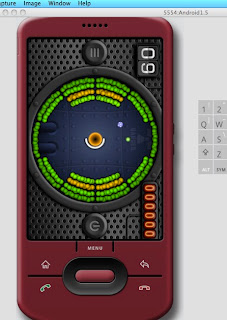It's been a couple of days since the Apple dropped a
nuclear bomb into the iPhone developer community . The initial shock has faded, but many questions remain. What will Apple actually do? Will they actively enforce their new restrictions? Will they respond to the serious concerns of the broad development community and modify the language? Or will they simply leave it as a strong
No Trespassing warning, with a loaded shotgun on the porch ready to use whenever they wake up from their nap?
Meanwhile, various 3rd party developers critique the policy.
Adobe CTO Kevin Lynch
concentrates attention on the CS5 launch, downplays the importance of the Flash packager for iPhone, and looks beyond. Is that capitulation, or merely putting all of the fuss into (much needed) perspective?
Behind the scenes at Adobe, a
personal blog by Lee Brimelow underscores the emotional impact of the issue.
3rd party developer Appcelerator's CEO Jeff Haynie
waits anxiously for Apple to clarify its position. I don't anticipate Apple doing any such thing anytime soon. They have all the cards, and they've never been one to worry too much about pissing off developers -- remember Hypercard? Cyberdog? Metrowerks? The list goes on and on.
Ansca CTO Walter Luh confidently
discusses their position.
CEO Robert Virkus of Enough Software
blogs about the clause, arguing that developers should band together to discuss their options, including legal ones if necessary. They don't use the word monopoly, but this is clearly implied: "this lock in effect of clause 3.3.1 is not fair because Apple uses its dominant position in the mobile application space to force developers to develop directly for its platform."
MonoTouch's
official statement is here and affirms support for Apple's SDK 4.0, stating "If Apple's motives are technical, or are intended to ensure the use of the Apple toolchain, MonoTouch should have little difficulty staying compliant with the terms of the SDK."
Unity CEO David Helgason weighs in
with their position here, noting "the new ToS are difficult to parse with certainty and open to broad interpretation"
Luckily we now have some humorous takes on the situation... Music may
now only be produced with GarageBand, and Apple's developer license
prohibits apps written by the left hand.
Meanwhile, a few iPhone developers are hanging up their hats. Dan Grigsby at
Mobile Orchard is stopping publication and abandoning iPhone development. This is an admirable and principled stance, although I wouldn't expect many iPhone developers to follow suit.
On the iTunes store, Muchosmedia's application Just Letters says "it is probably that [the Just Letters app] will soon be banished from the walled garden of Eden. How tragic." Humorously the app price has now been raised to
$199.99. Good luck with that.
The real winner in all of this has to be Android, and by extension, Google. As the mobile OS popularity rivals and potentially exceeds that of the mighty iPhone, if 3rd party developers are locked (or frightened) out of the iPhone world, there is exactly one place they can go, and that is Android. All of that talent and innovation, all of the rapid development frameworks, and all of the non-Objective-C developers out there (and there are a LOT) will look to the increasingly attractive alternative. Any plans that were formerly iPhone-first, port-to-Android-etc-second, suddenly change to Android-ASAP (with a possibility of Palm, Blackberry, etc support later).
Update: Ars Technica weighs in
with this review. In it, they state "this move hurts Android. In fact, I think the harm done to Android could end up being even more substantial than the harm to Adobe. Although I would say that the biggest virtues of these banned tools are faster, easier development, the fact is that they also often encourage cross-platform development". I took the opposite position. Yes, it's true that from the vantage point of an iPhone developer, if I have an Objective-C app, I will have a higher hill to climb for Android (than if I could use a porting tool). That is true today. But the 3rd party tools, driven to Android, will in fact make it easier to develop any app for Android. Worst case, you may have to rewrite from scratch for Android, but you won't have to pay nearly the same price as you did for Objective-C. And in fact, many prospective app developers who wouldn't have been able to use Objective-C in the first place, will have no place to go but Android.

